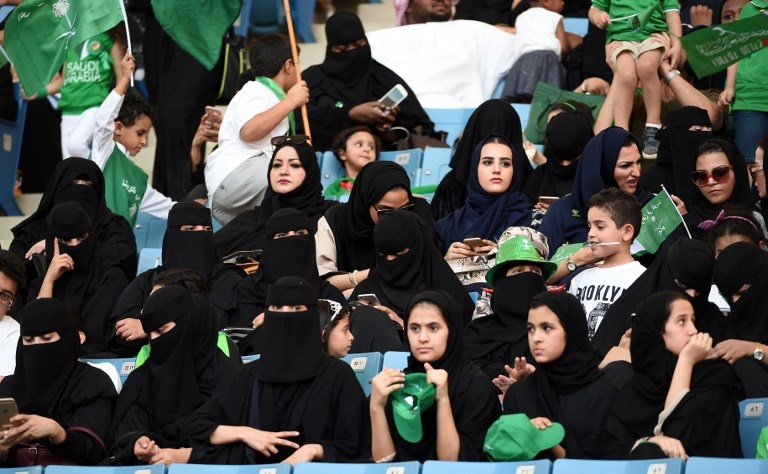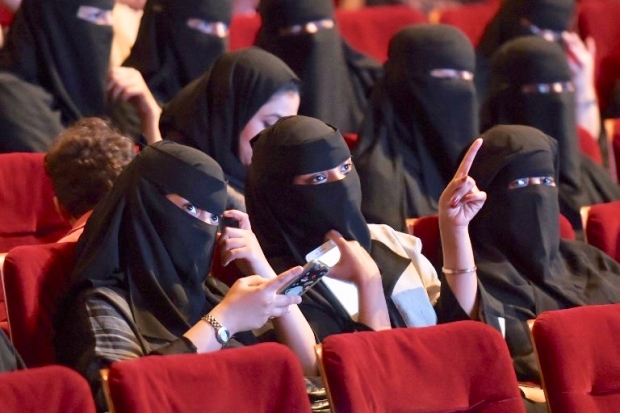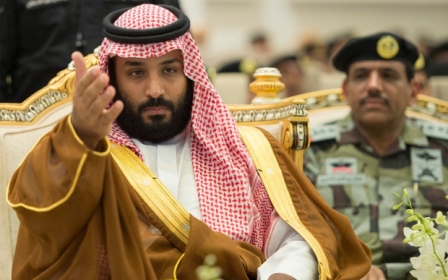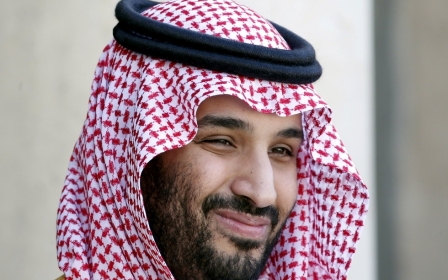Saudis to allow women into male-only sports stadiums next year

Saudi Arabia will allow women into sports stadiums for the first time from next year, authorities said on Sunday, in a landmark move opening up three previously male-only venues to families.
The kingdom, which has some of the world's tightest restrictions on women, has long barred women from sports arenas by strict rules on segregation of the sexes in public.
The announcement is in line with powerful Crown Prince Mohammed bin Salman's ambitious reform drive shaking up the ultra-conservative kingdom, including the historic decision to allow women to drive from next June. The kingdom is also expected to lift a public ban on cinemas and has encouraged mixed-gender celebrations - something unseen before.
It was one of a raft of decisions announced by Turki al-Asheikh, chairman of the General Sports Authority, aimed at supporting and stimulating the sports sector, the Arab News reported. The authority “will start rehabilitating the main stadiums in Riyadh, Dammam and Jeddah to be ready to receive families starting in 2018,” al-Asheikh said.
Restaurants, cafes and monitor screens would be set up inside the stadiums, he added. The move is part of Saudi Arabia’s efforts to engage women in society as an integral part of the development process, the Arab News said.
This month, al-Asheikh, who is also president of the Saudi Olympic Committee, appointed Princess Reema bint Bandar president of the Saudi Federation for Community Sports. Princess Reema has also opened the new Studio 5 gym in Jeddah, according to the Arab News. She seeks to encourage women to take exercise in order to maintain a healthy lifestyle.
Last month hundreds of women were allowed to enter a sports stadium in Riyadh, used mostly for football matches, for the first time to mark Saudi Arabia's national day.
Under the country's guardianship system, a male family member - normally the father, husband or brother - must grant permission for a woman's study, travel and other activities.
But the kingdom appears to be relaxing some norms as part of its "Vision 2030" plan for economic and social reforms, which aims to boost female employment.
In July, rights campaigners welcomed an "overdue" reform by the education ministry to allow girls to take part in sports at state schools.
In a rare public appearance last week at an investor summit in Riyadh, Prince Mohammed pledged a "moderate" Saudi Arabia, long seen as an exporter of a brand of puritanical Islam espoused by militants worldwide.
MBS, as he is known, promised his kingdom will return to "what we were before - a country of moderate Islam that is tolerant of all religions and to the world".
His comment, while unveiling plans for a $500bn development zone, chimes with his public image of a bold liberal reformer in a conservative country where more than half the population is under 25.
But the vision of creating a "moderate Saudi Arabia" is fraught with risks and could trigger a backlash from conservatives, analysts warn.
The government appears to have clipped the wings of the once-feared religious police - long accused of harassing the public with rigid Islamic mores - who have all but disappeared from big cities.
Some conservative clerics - who for years staunchly opposed more social liberties for women - have backpedalled and come out in favour of the decree allowing them to drive.
New MEE newsletter: Jerusalem Dispatch
Sign up to get the latest insights and analysis on Israel-Palestine, alongside Turkey Unpacked and other MEE newsletters
Middle East Eye delivers independent and unrivalled coverage and analysis of the Middle East, North Africa and beyond. To learn more about republishing this content and the associated fees, please fill out this form. More about MEE can be found here.





